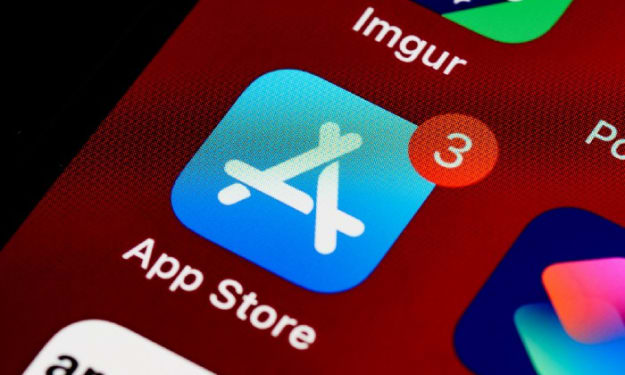3 Notebook Alternatives So That Your Writing Ideas Are Never Lost
My writing notebook was destroyed. I cried. A lot.

Oh, my writer’s notebook. I would put it up there with the top three things I would grab if my house were on fire. If you are true writer, you have a notebook or something similar and keep it with you at all times. You use it to jot down story ideas, quotes, random thoughts, deadlines, doodles, and whatever else pops into your brain that you may need to remember later. It is your holy grail.
My notebook, however, in my rush to leave my office, was left on my desk, which was directly under the air condition unit. Overnight, the unit leaked. The water didn’t even touch my computer, but all the paperwork in the area was soaked, including THE notebook. I tried to salvage it, but it was gone. All of my ideas from the past year, erased. I cried real tears.
I am starting over, but this time, I am going to be smarter. Just like with our data from our computers and phones, having a backup is absolutely necessary. I learned that the hard way unfortunately.
Depending on your preference, here are some ideas that might not only save us from the heartache of losing our life’s work but may actually be more convenient. Who knows? It may even increase productivity.
Type Out Your Written Notes
I used to do this in college. I would go home after a day of jotting down scribbled notes in class and type them out, which produced several positive results. It helped me to retain the information, as I was again reviewing the information. It allowed me to organize my thoughts by systematically formatting them rather than just chicken scratch on a page. It also supplied me with an outline to study and the ability to save the information for later use.
These notes can be uploaded to a digital file-sharing site, such as Dropbox or Onedrive, and become reachable from your phone, tablet, or computer. Copy and paste, probably two of my most favorite things in life make it so easy to copy over to stories that I work on.
Use a Note App on a Tablet or Phone
Most smartphones come with some type of default note app. I use mine to jot down appointment dates, grocery lists, and story ideas in the event I didn’t have my notebook handy. The default app is very problematic, however, in that it doesn’t allow for a lot of organization. There are other apps out there that are designed for larger amounts of information to be stored and organized, a must for writers.
Evernote is awesome because it syncs with Google calendar. Notes are searchable and can be divided into notebooks, as well as lists. It supports different types of content such as text, docs, PDFs, sketches, photos, audio, web clippings, and more. Like file sharing apps, it is accessible on any device. Inkpad Notes, OneNote, Notebook, and Flow are some other apps with good reviews for Apple customers.
I had given thought to purchasing a digital voice recorder for me to easily take notes while I’m driving. For some reason that is when my creative juices flow the most. My main reason for not getting on was having to keep up with multiple devices.
I recently came across the app Otter, which is a voice note transcriber app. It is pretty amazing and if I can remember that I have it on my phone, I will probably use it to record most of my story notes.
Use an Electronic Notebook
I got really tired of my husband’s random notebooks and legal pads cluttering up my kitchen table, so last Christmas, I bought him a Rocketbook. A Rocketbook is just one brand of electronic notebook. They are environmentally friendly, as there is no paper being used.
If you prefer to old school write your notes rather than type, the Rocketbook is an amazing alternative. You simply write on the page using the special pen and use a damp cloth to erase.
You can set up to have your notes automatically upload to cloud services like Google Drive, Dropbox, Evernote, OneNote, Slack, iCloud, and more. Notes are searchable and it uses AI technology to provide smart titles and email transcription.
The normal Rocketbook is the usual 8.5 in x 11in letter size. There is also the Mini, which is smaller, and the Flip, which flips horizontally rather than vertically. The Fusion includes task lists, calendars, a planner, an idea list, and a goal template. All of them are less than $50, which is less than I spent on my regular notebook and all of the add-ons.
Takeaway
Even with so much technology available, some of us that prefer the feel of pen to paper to share our stories and ideas. There is nothing wrong with that, but as I recently learned, you need to find a way to backup the information that your brain has worked so hard to come up with. I can only imagine the number of best-selling ideas that were lost to leaking AC units, fireplaces, and spilled coffee. Don’t lose your bestseller!
***Please note that I did not receive any compensation from any of the products mentioned. I am not advertising the products, but simply providing alternatives for writers***
***Story was previously published by the author on Medium.com***
About the Creator
Kassondra O'Hara
Working mom who uses her curiosity to fuel the curiosities of others ~ Writes mostly history and true crime






Comments
There are no comments for this story
Be the first to respond and start the conversation.